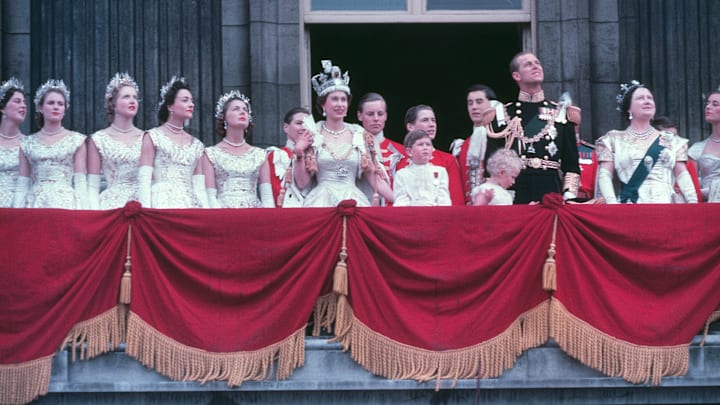On June 2, 1953, Queen Elizabeth II celebrated her history-making coronation with ample pomp and circumstance at London’s Westminster Abbey. It was more than a year after the death of her father, King George VI, in February 1952.
But the kingdom hadn’t been ruler-less for those 14 months. As the University College London explains, the UK adheres to the old Latin adage rex nunquam moritur, meaning “the king never dies.” In other words, whoever is next in the line of succession automatically inherits the role when the sitting monarch dies, precluding even a fleeting gap in leadership. The moment George VI passed away, then-Princess Elizabeth became queen—no ceremony necessary. That metaphorical passing of the baton is known as the accession (as in accede to the throne).
So when Queen Elizabeth II herself passed away on September 8 after a record-setting 70-year reign, Prince Charles immediately became king (King Charles III, to be exact, though he could have chosen another name).
While the act of accession technically occurs without any human intervention, the UK unsurprisingly has a very detailed official process of declaring the death of the old sovereign and confirming the new sovereign after the fact. The Accession Council—comprising a cross-section of important politicians and other high-ranking officials, including the prime minister and the Archbishop of Canterbury—and the royal family convene at St. James’s Palace in London within about a day of the monarch’s passing. A proclamation is read aloud there, as well as in several other key spots throughout the UK.
The coronation, on the other hand, is when the UK marks the formal investiture of a new sovereign. King Charles III will likely don St. Edward’s Crown and the other Coronation Regalia, and the ceremony will almost certainly be held at Westminster Abbey—as it has been for nearly a millennium.
A date hasn’t been announced for Charles’s coronation, but it probably won’t be held for a number of months. This is partially so the royal family can duly mourn the loss of Queen Elizabeth II, and also “as a result of the enormous amount of preparation required to organize the ceremony,” per the royal family’s website.
